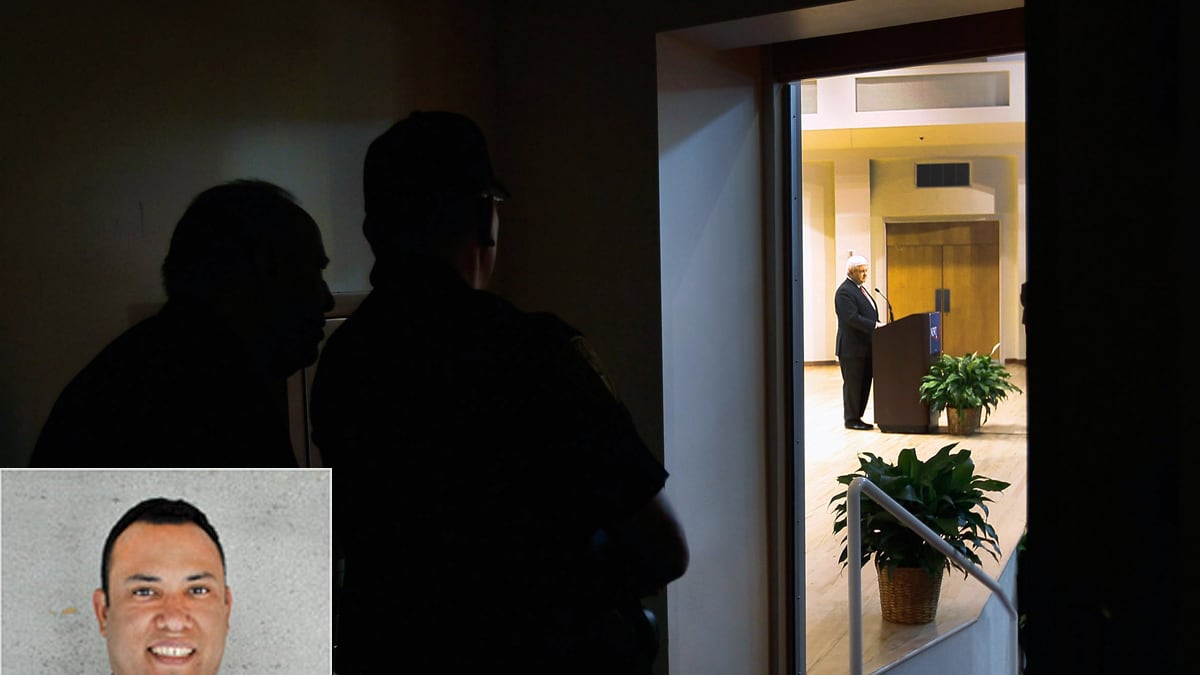The Florida primary has become a battle between money and momentum. Polls now show a virtual tie as Mitt Romney has plummeted 25 points in the state in the last week following Newt Gingrich's decisive win in South Carolina.

Romney has an edge in establishment organization and a big bankroll to blanket the Sunshine State with television ads. But Newt Gingrich has a secret weapon. And his name is Jose Mallea.
Mallea, now 34, was the young campaign manager for Marco Rubio's successful insurgent primary campaign against incumbent former governor Charlie Crist in 2010. This year, he is the Florida state director for Gingrich—where he's again charged with organizing a conservative activist uprising against the once seemingly inevitable establishment candidate.
"The message that Romney has been carrying for months now is 'electability,' right? Well, that's what you used to hear about Charlie Crist," says Mallea. "Crist was the establishment candidate, a moderate Republican with all the money and all the endorsements. And we weren't. Charlie Crist was the kind of candidate that was willing to say and do anything to get elected. That's what you've got in Mitt Romney—a guy that's willing to change his opinions just to win the vote."
That's not the only parallel Mallea sees: "In the last debate, Romney took a page out of the Charlie Crist playbook. Where you're trailing behind in the polls you resort to the politics of personal destruction, but I think it ends up backfiring."
The fault lines of the 2010 primary campaign show signs of persisting in Florida. Like Rubio, Gingrich's core support comes from Tea Party voters, social conservatives, and Republican activists. Romney does best in the wealthy communities scattered along the coastline; he is the candidate of Northern transplants, centrist Republicans, and elected officials.
The edge Team Newt hopes to exploit is the enthusiasm gap. Romney has been organizing in Florida for months. It took Team Newt just over a week to organize in all 67 counties, and recent rallies have seen 4,500 people turn out in Sarasota and 6,000 people in Naples on only a few days' notice.
"The Newt voter, once they're committed, is incredibly active," says Mallea. "They get out there. They spread the word. I don't think I've seen that from the Romney voters ... The Tea Party folks are starting to coalesce around us, especially in central Florida, which is huge."
Born in New Jersey but raised in the Cuban-American stronghold of Hialeah, Jose Mallea got his start in national politics working on the Bush 2000 campaign. After the hanging chads were resolved, he went on to serve as the "body man" for Bush first-term chief of staff Andy Card and then chief of staff to independent Miami Mayor Manny Diaz.
But it was his role in the 2010 that elevated his reputation to the top tier of Florida Republicans.
Hispanics—who now making up 11 percent of the state's registered Republican voters—could end up being the crucial swing vote that makes all the difference in Florida's winner-takes-all-delegates primary. Romney might have a problem with this demographic because of his right-flanking move on illegal immigration going back to 2008, when he tried to make political hay of so-called sanctuary cities like New York, and of John McCain's support for comprehensive immigration reform. This cycle, he hit Rick Perry hard for his support of Texas's version of the DREAM act.
In contrast, Newt recently received the endorsement of a key Hispanic Republican group—Somos Republicans—because of his somewhat controversial support of comprehensive immigration reform and passionate argument that the GOP needs to reach out to Hispanic voters to remain relevant.
This issue gained new attention when a Gingrich ad accusing Romney of being "anti-immigrant" was criticized by Rubio and quickly taken down. Mallea tells me that the ad has been reedited to take out that offending one line and now is back on the air. "Newt Gingrich has a clear policy on Cuba, Latin America, and immigration—Mitt Romney does not and this ad was just an attempt to draw that clear contrast."
"Newt has been doing a great job with Hispanics," Mallea continued. "He's taken some heat on the immigration issue in those debates but he's held his own and it obviously didn't hurt him in the earlier states. Now he gets to come to Florida and take advantage of that because that narrative has already been established. Romney's going come in and run commercials in Spanish but it's not going to be as genuine because Newt has been talking about it for five months."
With election day fast approaching and early voting already started, Florida is a fight for every vote with vast implications. A Newt win here could knock the bottom out of the Romney campaign, removing the core arguments of inevitability and electability. A Romney win could likewise be decisive. But in either case, it looks like we are in for a long Republican primary campaign, possibly extending until June—or even the convention in Tampa.
"Do we have the money to compete with this guy on TV, dollar for dollar? No. Will we have it between now and next Tuesday? No way," Mallea concedes. "But we will have enough to carry a message and penetrate that market. And that's all we feel that we need to do. Carry our message. Make sure the grassroots is organized. Use Newt's time as efficiently as possible and continue to push the bold ideas on American energy and immigration policy, on space, on jobs, on national security, on social conservative issues-whatever it is-push the ideas 'cause that's what gets people really motivated."






